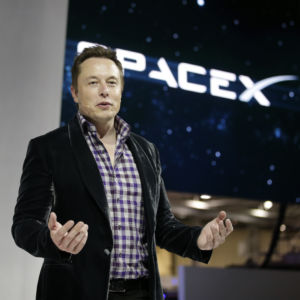An historically slow recovery with weak economic growth has created enough economic angst to fuel multiple populist, outsider campaigns this election season. At least one apparent bright spot in the economy, however, is the near-record high profits being recorded by U.S. corporations, which in turn has sent the stock market to record highs. But there’s reason to question even that, as a growing share of corporate profits are being derived from lobbying and favorable regulations – cronyism – instead of productive contributions to the economy.
According to research recently reported in Harvard Business Review by economist James Bessen, “since 2000, political activity and regulation account for a surprisingly large share of the increase” in corporate valuations and profits. Corporations have always been able to game the system and benefit from special carve-outs from both politicians and regulators, but the problem seems to be getting worse.
Consider iconic modern industrialist Elon Musk. While generally viewed as a visionary tech entrepreneur, Musk has also mastered the art of using government to benefit his corporate interests.
The PayPal co-founder has a variety of ventures in emerging sectors, including solar energy collection, electrical vehicle production, and space exploration. It’s an inspiring list, but in each field he has benefited heavily from taxpayer support. In total his three companies have received an estimated $4.9 billion in subsidies according to the Los Angeles Times, plus billions more in government contracts.
The latest example involves his SpaceX, which made headlines earlier this year for successfully landing one of its Falcon 9 rockets at sea. A very respectable achievement, but less commendable is the backroom Washington dealing on the company’s behalf that could pave the way for SpaceX to secure lucrative defense contracts without competition. At the behest of Senator John McCain, this year’s National Defense Authorization Act includes an amendment worth billions for SpaceX and Musk.
Currently a joint venture between Lockheed Martin and Boeing called the United Launch Alliance (ULA) produces the rockets used for launching defense satellites into orbit. ULA buys the engines for their rockets from Russia, which McCain and Musk – who previously sued over the issue – argue is reason to restrict ULA from fulfilling the remainder of their contract.
The Russian engines are widely acknowledged as reliable, and were even created at the behest of the U.S. as it sought to keep Russian scientists employed in respectable fields instead of selling secrets to rogue nations. Rockets using domestic alternatives are currently either too expensive or, in the case of SpaceX, not yet capable of carrying sufficient loads into orbit.
Most importantly, the Director of National Intelligence and top military officials have testified that continuing to use rockets from ULA, even with their Russian engines, best serves our national security interests until domestically sourced alternatives are ready for use.
Ultimately, McCain was forced to compromise on his demands to immediately end procurement of ULA rockets and instead set a cut-off date of 2022. Maybe SpaceX will be ready to step in at that time with reliable rockets powered by domestically built engines, or maybe it won’t. But there’s no legitimate reason for Congress to limit its options at this time except as part of a crony deal paving the way for Musk alone to bid on supplying the rockets. The better approach would be to keep as many eligible to compete as possible and let the best bidder win.
McCain’s amendment is just one of many benefits Musk has managed to wrangle for his companies. Tesla not only got a federal loan guarantee to manufacture its electrical vehicles, but purchases are subsidized through tax credits. SolarCity gets a similar combination of subsidies and customer tax credits for its solar panels.
SpaceX even got taxpayer backed loans from the cronyism-enabling Export-Import bank. Ex-Im’s Chairman justified the support with the perplexing claim that SpaceX is a “small business” despite employing 4,000 people. Last year’s purchase of a 10 percent stake in SpaceX by Google and Fidelity also shows it has no problem raising capital on its own without taxpayer support.
None of this is to say that Musk has made no legitimate economic contributions, but rather that his companies have profited at least in part thanks to the largess of politicians, and not due to market forces alone. At a time when wages for most of the very taxpayers funding those handouts remain stagnant, that’s a tough pill to swallow.

